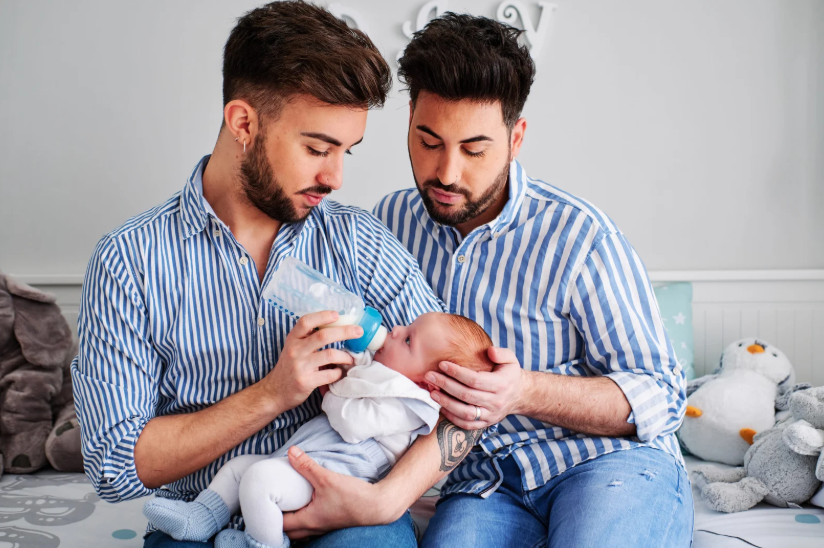Understanding Surrogacy for LGBTQ+ Families

For many LGBTQ+ individuals and same-sex couples, surrogacy is a transformative pathway to parenthood, offering the opportunity to have a biological connection to their child. While the medical process of surrogacy is similar for all intended parents, LGBTQ+ families often face a unique set of legal, financial, and social challenges. Understanding how surrogacy works specifically for gay couples, lesbian couples, and other LGBTQ+ parents is essential for navigating this complex but deeply rewarding journey successfully.
How Surrogacy Works for LGBTQ+ Families
The surrogacy process for LGBTQ+ intended parents follows a structured path, though the initial steps differ based on biology. For gay male couples or single men, the journey requires both an egg donor and a gestational surrogate. Embryos are created through In Vitro Fertilization (IVF) using sperm from one or both partners and a donated egg. These embryos are then transferred to the surrogate, who carries the pregnancy. For lesbian couples, if one partner can provide eggs but cannot carry a pregnancy, her egg can be fertilized with donor sperm and carried by a surrogate. This allows both partners to be biologically involved—one genetically and the other through carrying—though with a surrogate, the genetic mother does not carry. https://www.mother-surrogate.com/
The process involves several key stages:
- Selecting a Surrogacy Agency: Choosing an agency experienced with LGBTQ+ families is crucial. They understand the specific legal landscape and can provide appropriate matching and support.
- Creating Embryos: This involves sperm from the intended father(s) and eggs from a donor (for gay men) or from an intended mother (for lesbian couples).
- Matching with a Surrogate: Agencies help find a surrogate who is fully supportive and comfortable working with LGBTQ+ parents.
- Legal Contracts: Comprehensive agreements are drafted to establish parental rights for the intended parents and protect all parties.
- Medical Process & Pregnancy: After embryo transfer, the pregnancy is monitored closely, with the intended parents involved in milestones.
- Establishing Parentage: The final step involves obtaining a pre-birth or post-birth order to secure the intended parents’ legal rights and ensure their names are on the birth certificate.
See also: Turf Laying Services: The Key to a Lush, Healthy Lawn
Legal Landscape and Potential Challenges
The single most significant challenge for LGBTQ+ families pursuing surrogacy is the vastly inconsistent legal landscape. Surrogacy laws vary dramatically from state to state in the U.S. Some states are explicitly LGBTQ+-friendly, offering clear pathways to pre-birth orders that secure parental rights for both intended parents from the outset. However, other states have laws that are ambiguous or even hostile, potentially complicating the establishment of parentage for same-sex couples. This makes the choice of where the surrogate lives and gives birth a critical legal decision.
Beyond legal hurdles, LGBTQ+ intended parents may also face:
- Higher Costs: The need for both an egg donor and a surrogate for gay men can make the journey more expensive.
- Social Stigma: Despite growing acceptance, some may encounter bias or a lack of understanding from others during their journey.
- Complex Medical Logistics: Coordinating with egg donors, sperm donors (for lesbian couples), and surrogates requires meticulous planning.
Finding the Right Support System
Given these complexities, finding an experienced and supportive surrogacy agency is perhaps the most important step for LGBTQ+ intended parents. The right agency will have a proven track record of working with gay and lesbian couples, understand the states with the most favorable laws, and work with attorneys who specialize in securing parental rights for LGBTQ+ families. They should also offer robust emotional support and resources to help navigate the unique aspects of the journey.
Reputable agencies will be transparent about their success rates and provide references from other LGBTQ+ parents they have helped. This support system is invaluable for overcoming challenges and ensuring a smooth process. Despite the obstacles, thousands of LGBTQ+ individuals and couples have successfully built families through surrogacy. With careful planning, expert legal guidance, and the right professional support, the dream of parenthood is entirely achievable, creating families founded on love, intention, and unwavering commitment.





